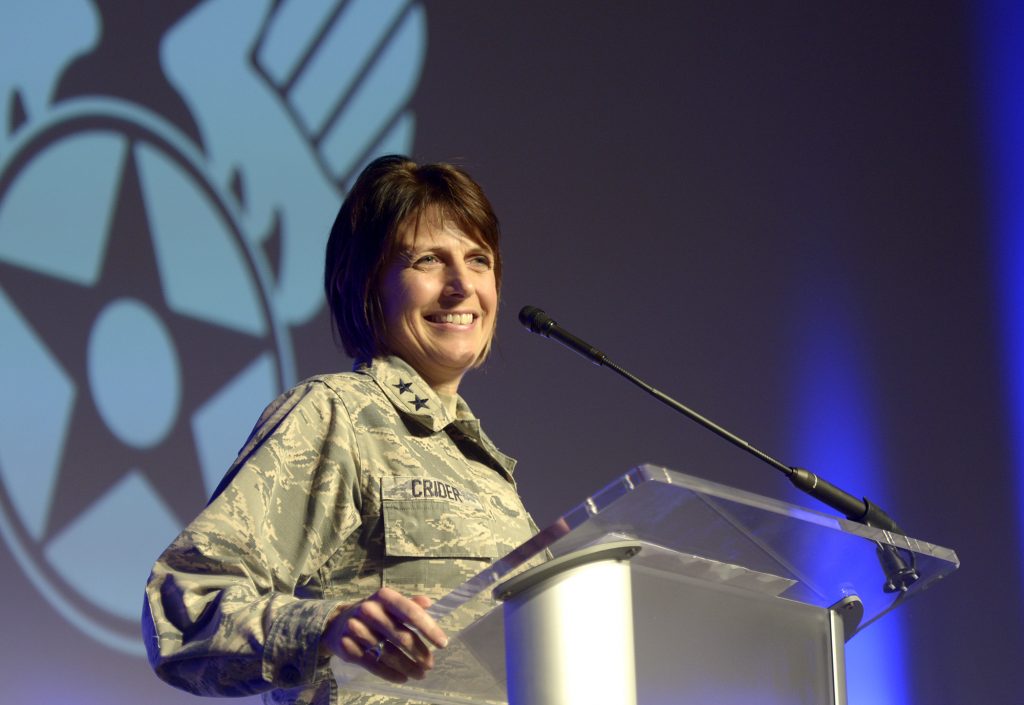
WASHINGTON: The next step for the Air Force’s experimental cloud-based library of space situational awareness (SSA) data is to expand its user base, including to US allies, Maj. Gen. Kim Crider, data integration guru at Air Force Space Command (AFSPC), says.
Crider’s formal title is special assistant for mobilization to AFSPC Commander Gen. John Raymond, a position she has filled for only six months — after serving as the first-ever Air Force Chief Data Officer. At AFSPC, she is heading an evolving effort to build the so-called ‘Unified Data Library’ (UDL) that Air Force leaders (including acquisition chief Will Roper) one day hope will be able to mesh data from all types of sensors to provide command and control (C2) for most Air Force military missions.
Speaking this morning at the Mitchell Institute, Crider explained the UDL as “an enterprise data repository for managing access, integration and dissemination of data across multiple levels of security.” She added: “It is the first of its kind in the DoD.”
The UDL currently is focused on integrating observation data from DoD and commercial SSA sensors as input to the Enterprise Space Battle Management Command and Control (ESBMC2) system for the National Space Defense Center (NSDC).
The next step is to expand its operations to allow different levels of access to users with different clearance levels (unclassified, secret, top secret and above), and invite non-DoD personnel to become test users. This will include representatives of “coalition partner” governments, Crider said.
Further, the UDL may serve as a model for how the Commerce Department can build its White House-mandated Open Architecture Data Repository for providing SSA data, conjunction analyses and collision warnings to commercial and foreign space operators. Kevin O’Connell, head of the Commerce Office of Space Commerce, told me today that his team will “this summer take possession of a experimental copy of the UDL, with a view toward how it might be helpful to us on the commercial side.”

Modern Tech in Indo-Pacific Operations
Explore how networked warfare, AI, and 3D-printed drones are reshaping US Indo-Pacific strategy.
The UDL was created last year in concert with Air Force Space and Missile Systems Center (SMC), a team of software developers from Air Force Research Laboratory and industry. The Data Program Management Office overseeing the UDL is based at the Colorado Springs Catalyst Campus tech accelerator, and is supported by enterprise software start-up Bluestaq LLC (also in Colorado Springs).